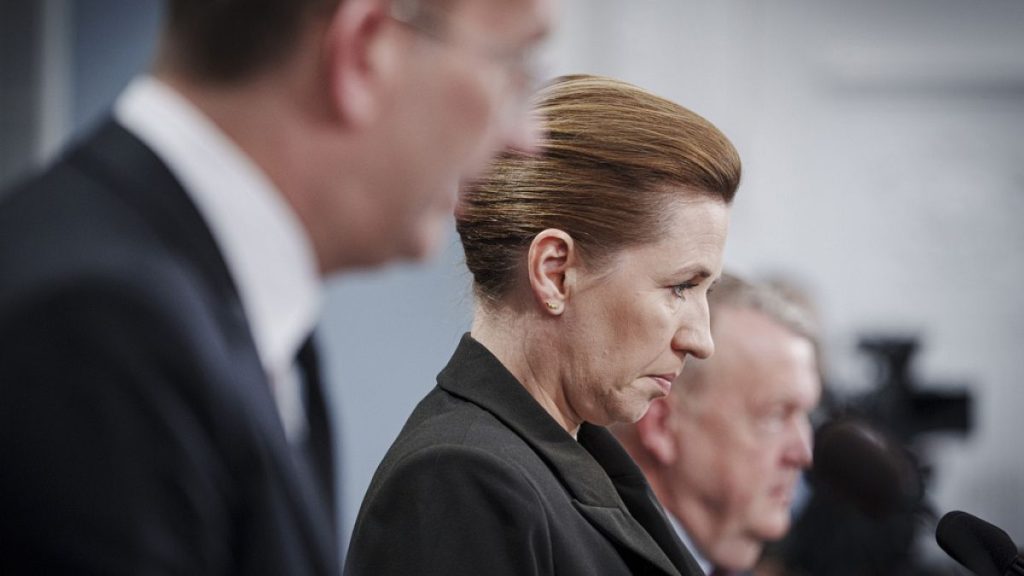Danish Prime Minister Mette Frederiksen suffered minor whiplash in a street attack that follows a wave of attacks on politicians across Europe. In her first interview since the assault, Frederiksen told reporters that she was not quite herself but would continue to work from her office. The incident took place in Kultorvet, one of Copenhagen’s main squares, where a man pushed Frederiksen before hitting her upper right arm. Although Danish police believe the attack was not politically motivated, Frederiksen expressed feeling intimidated and shocked by the incident. She also noted that threats on social media had increased, especially after the war in the Middle East.
The assault on Frederiksen is part of a wave of violence directed towards politicians across Europe. In Slovakia, Prime Minister Robert Fico survived an assassination attempt last month, but faces a long recovery. Attacks on Green politicians in Germany have almost tripled in the past decade, with other politicians in the country also facing violence. In the run-up to the European elections, members and supporters of both the coalition government and opposition parties in Germany have been targeted. Recently, a local council candidate for the Alternative for Germany (AfD) party was injured in a knife attack in Mannheim. German Social Democrat politician Lars Klingbeil highlighted the increase in violence against politicians on campaign trails, calling it a social problem affecting all democratic parties.
The incident drew both domestic and international criticism, with Danish ministers and leaders like French President Emmanuel Macron condemning the attack on Frederiksen. A 39-year-old Polish man living in Denmark has been arrested and held in pre-trial custody until June 20 in connection to the assault. Frederiksen described the incident as an attack not just on her as a person, but on the role of the prime minister and by extension, all individuals. The assault has raised concerns about the safety of politicians and the increasing threats and violence they face in their roles.
Frederiksen’s assault has brought attention to the issue of violence against politicians in Europe, with attacks becoming more frequent and severe. Politicians across the continent are facing threats, intimidation, and physical violence, both online and offline. The targeting of political figures can have a chilling effect on democracy and the ability of leaders to fulfill their duties without fear of harm. The incident has sparked discussions about the need to protect politicians and take measures to ensure their safety while they carry out their responsibilities.
The assault on Frederiksen underscores the need for greater security measures and vigilance to protect politicians from harm. Leaders must be able to engage with the public and carry out their responsibilities without fear of intimidation or violence. The incident serves as a reminder of the importance of upholding democratic values and protecting the rights of elected officials to serve their constituents without facing physical threats. The wave of attacks on politicians in Europe highlights the need for a collective effort to address the underlying issues that contribute to such violence and ensure the safety of political figures across the region.
The assault on Danish Prime Minister Mette Frederiksen and the wave of attacks on politicians across Europe highlight the growing challenges faced by political leaders in carrying out their duties. The incident serves as a reminder of the importance of protecting the safety and security of elected officials and the need for a concerted effort to address the increasing threats they face. Governments and societies must work together to ensure that politicians can fulfill their roles without fear of harm, upholding democratic principles and safeguarding the rights of those in public office. Addressing the root causes of violence and intimidation against political figures is essential to preserving the integrity of democratic processes and ensuring the well-being of those who serve their communities and countries.


